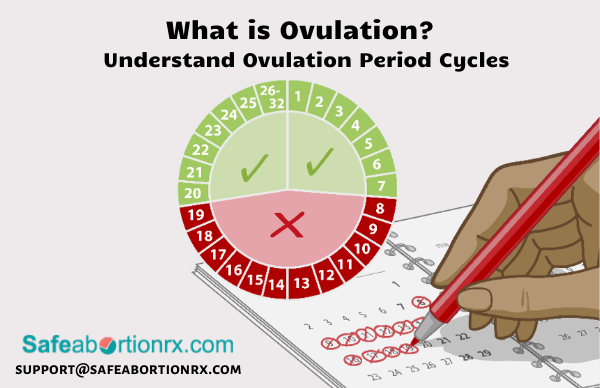
Ovulation is an occurrence in a woman’s body when the ovarian follicle ruptures to pass the secondary oocyte ovarian cells. It is not as difficult as it sounds. The event is subtle enough if your menstrual cycle is regular. Hence, you observe that most healthcare providers focus on normalizing your menstrual cycle to have better ovulation.
To understand your ovulation period and cycle, you should make efforts to regulate your menstrual cycle. The period largely depends on the menstrual cycle and hence can take place anywhere between 12-18 days after the last menstruation. It typically takes place around the 14th day after your last menstrual period. Some of the pharmacies also have the accurate ovulation calculator where you can calculate your ovulation day.
Ovulation takes place when the egg in the ovaries are released for the process of fertilization. In this, the ovaries release an egg that passes through the fallopian tube. That’s where fertilization can take place post sexual intercourse. When you have Sexual intercourse, sperm entered from the ejaculation can reach the released eggs. With this, the woman can have more chances of getting pregnant. It is called ovulation, wherein the egg is more likely to get fertilized after meeting the sperm. This further grows an embryo, thereby the woman having a pregnancy.
How often Should you have Sex during Ovulation?
For women to get pregnant, gynecologists advise women to have sexual intercourse five days before ovulation or on the day they ovulate. How many times you have sexual intercourse may not make you pregnant. However, if you have sex at the right time, it can certainly give you the best chance of getting pregnant. Even among these five days, the fertile period, the first three days are when you are most productive. By 12-24 hours after ovulation, a woman will immediately have lower chances of getting conception for that menstrual cycle. It happens because the egg not in the fallopian tube anymore. However, this does not mean that you can unprotect sexual intercourse and will not get pregnant at all. If you wish to prevent unplanned pregnancy, you should definitely use contraception methods even when you’re less fertile.
You can find a good online pharmacy that will also help you.
What are the Signs of Ovulation?
• Slight cramping
• Tenderness of breast
• Bloating in the lower back area
• High level of libido
If you are planning to conceive, it is advised to have sexual intercourse as close as possible to the ovulation day, as this shall give you higher chances of pregnancy. For a woman with 28 days, the menstrual cycle should have sexual intercourse on the 12th or 13th day to have more chances to conceive. If you are still failing to get pregnant, it is advised that you consult your gynecologist at the earliest.


